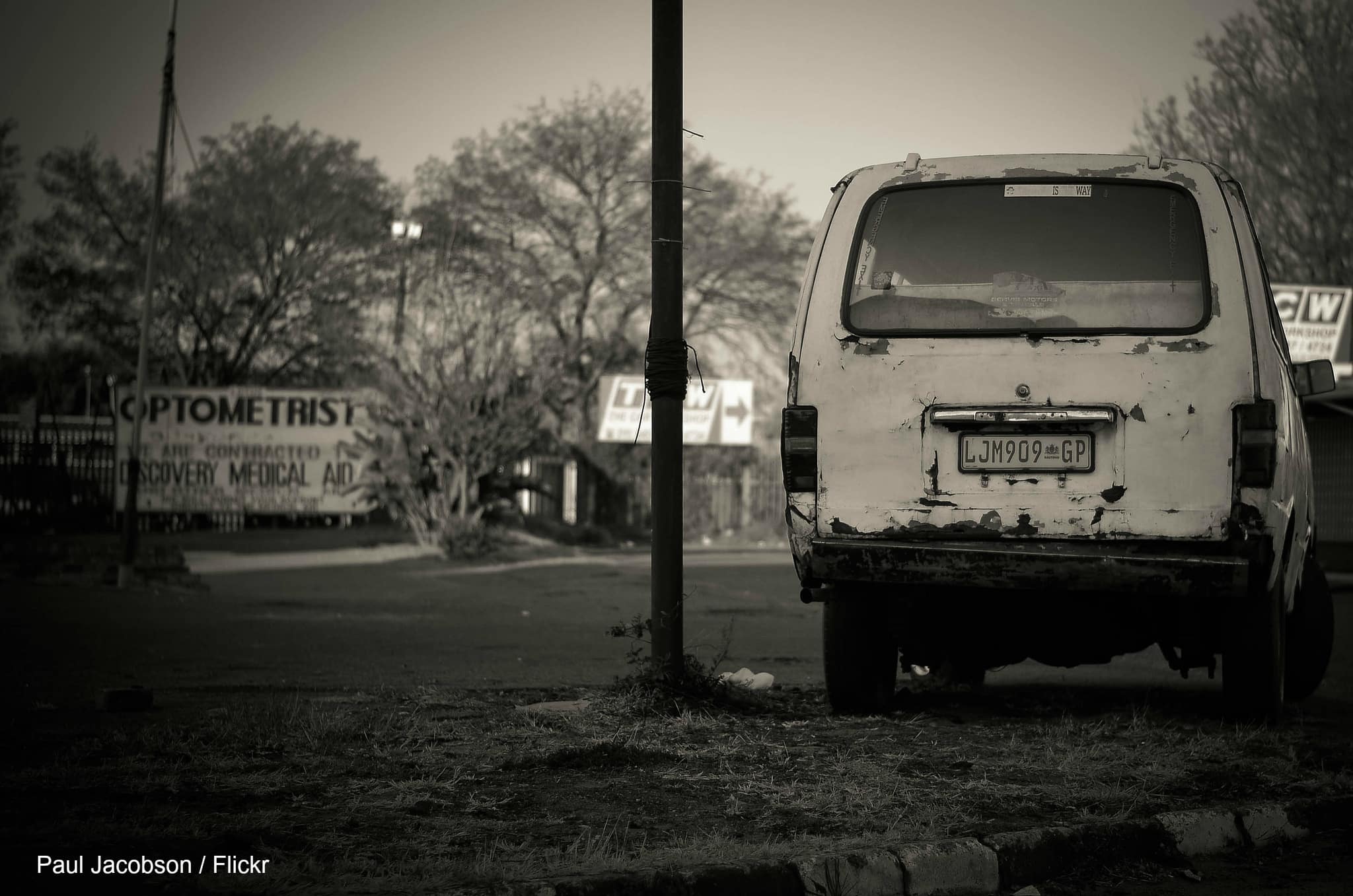TB: Taxis’ deadly passenger


About a 100 members of the AIDS lobby group the Treatment Action Campaign (TAC) recently took to some of Johannesburg’s busiest taxi ranks to spread awareness about tuberculosis (TB). Dodging and weaving among the queues of passengers at the Bree, Noord and Wanders street taxi ranks, activists had one simple message: Open a window and stop TB.
TB remains the leading cause of death in South Africa and accounted for almost nine percent of all deaths reported in Statistics South Africa’s latest report on causes of death in the country.
TB is spread after bacteria become airborne after those living with the bacteria cough, sneeze or even speak. With minibus passengers squeezed tightly into taxis with about 19 other people, it is not hard to see why a 2013 study found that taxis carried the greatest TB risk among public transport means.
Published in the American Journal of Epidemiology, the study tracked the amount of carbon dioxide – the gas exhaled by humans – on commutes made by minibus taxi, bus or train. Researchers then used mathematical modelling to predict commuters’ TB risk by mode of transport and found that the risk was highest among taxi users. Poor ventilation in taxis meant that minibus commuters faced a five percent annual risk of contracting TB, according to the research.
About 70 percent of South African households use minibus taxis, according to Statistics South Africa’s 2013 National Household Travel Survey.
TB talking points
At TAC’s recent awareness-raising drive, many taxi drivers reported that they had not previously been aware of the risks.
“It is a good move that TAC, as an organisation, is actually doing this because many people do not have enough information,” said taxi driver Sibongiseni Mngomezulu who works out of the Noord taxi rank in Johannesburg’s inner city. “Sometimes people are ignorant to such an extent that they find themselves getting sick when that could be prevented.”
“As taxi drivers, we appreciate what TAC did because even we did not understand why is it so important to tell passengers to open windows,” he told OurHealth.[quote float= right]”As taxi drivers, we appreciate what TAC did because even we did not understand why is it so important to tell passengers to open windows”
Mngomezulu’s co-worker Mfanafuthi Zwane said that the stickers were a conversation starter. He added that he planned to use the stickers to introduce the topic of TB awareness among his passengers.
Fellow driver Sizwe Ngubane urged the TAC to work closely with taxi associations to promote public health messaging at high-traffic ranks.
“It is a good idea to distribute these stickers so that even us passengers we will be able to see them and do what is right for us,” said passenger Ntombi Moremi. ”As South Africans, we are still fortunate that there are organisations like TAC that give health education through taxi ranks where there are people.”
According to TAC Gauteng Secretary Godfrey Lebono, the country’s largest member-based HIV organisation plans to work more closely with Gauteng taxi associations.
Construction worker Mxolisi Mtolo added that he thought government needed to do more to bring health services like TB testing into spaces like taxi ranks.
“We need mobile clinics all over that will be bring health services near to people,” said Mtolo, who added that visiting a formal clinic often means he loses a day’s pay. “That will actually help a lot to avoid long queues.”
“It would be easy to take my lunch time to rush to the mobile clinic and be able to test for all sickness such as TB, HIV and others,” he added.
The march comes on the heels of Deputy President Cyril Ramaphosa’s 24 March launch of a national TB screening campaign. According to Ramaphosa, the campaign is expected to be the largest ever conducted in South Africa. According to Ramaphosa, at least 140,000 people have already been screened for TB as part of the campaign.
An edited version of this story was first published on Health24.com and republished by the Mapepeza Community Newspaper.
Author
Republish this article
This work is licensed under a Creative Commons Attribution-NoDerivatives 4.0 International License.
Unless otherwise noted, you can republish our articles for free under a Creative Commons license. Here’s what you need to know:
You have to credit Health-e News. In the byline, we prefer “Author Name, Publication.” At the top of the text of your story, include a line that reads: “This story was originally published by Health-e News.” You must link the word “Health-e News” to the original URL of the story.
You must include all of the links from our story, including our newsletter sign up link.
If you use canonical metadata, please use the Health-e News URL. For more information about canonical metadata, click here.
You can’t edit our material, except to reflect relative changes in time, location and editorial style. (For example, “yesterday” can be changed to “last week”)
You have no rights to sell, license, syndicate, or otherwise represent yourself as the authorized owner of our material to any third parties. This means that you cannot actively publish or submit our work for syndication to third party platforms or apps like Apple News or Google News. Health-e News understands that publishers cannot fully control when certain third parties automatically summarise or crawl content from publishers’ own sites.
You can’t republish our material wholesale, or automatically; you need to select stories to be republished individually.
If you share republished stories on social media, we’d appreciate being tagged in your posts. You can find us on Twitter @HealthENews, Instagram @healthenews, and Facebook Health-e News Service.
You can grab HTML code for our stories easily. Click on the Creative Commons logo on our stories. You’ll find it with the other share buttons.
If you have any other questions, contact info@health-e.org.za.
TB: Taxis’ deadly passenger
by lungilethamela, Health-e News
April 9, 2015



